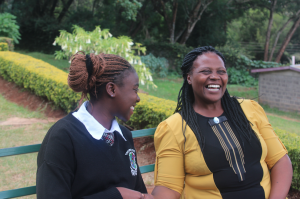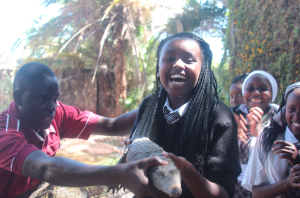FAQ and SAQs (Should-Ask-Questions) About Life in Kenya
by Taylor Dietmeier, Uhuru Academy Staff
“So what’s Kenya like?” asked one of my friends on the phone the other day. I didn’t quite know how to answer such a question. Could she be any more vague? As a result, I decided to make a list of frequently asked questions and should-ask questions for all those readers out there wondering just what is Kenya like and what are we doing there.
FAQs
- So is everyone, like, poor?
There is a great divide in Kenya between the wealthy and the impoverished. The richest 20% rose in the past decade to stand at 11 times more than the incomes of the poorest 20%. This leaves Kenya as East Africa’s most inequitable country after Rwanda. If incomes were distributed equally, each of Kenya’s 42 million citizens would earn $2,158 annually (Business Daily Africa). At Uhuru Girls Academy, our school in Kenya operated by Freedom Global, 60% of our students have a combined family income of less than $20 a month.
- What kind of animals do you see?
Should you choose to come to Kenya (and you totally should), you would see monkeys, warthogs, zebra, gazelle, and possibly buffalo and giraffes crossing the road or stealing your picnic in some areas. In the safari parks, you will see hippos and elephants, lions and maybe even leopards!
SAQs
- Why do you focus on girls’ education?
In Kenya (and many parts of the world), if money is limited, parents are more likely to send the boy child to school over their daughters. However, statistics show:
- Educated women are less likely to die in childbirth
- A mother’s education improves child nutrition
- Girls with higher education are less likely to have early pregnancies
- Girls are less likely to get married at an early age
- Education narrows pay gaps between men and women
- Educated women are more likely to find work
- What are social businesses?
Social businesses are businesses that are created and designed to address a social problem. It is intended to be financially self-sustainable and the profits are used to help solve an overarching social problem. For Freedom Global, our social businesses (pig rearing, lettuce farm, etc.) provide employment for adults and the profits are used to invest in scholarships for students.
- Why do the students have merit-based scholarships? Why not just needs-based?
Passing the national primary school exam is not an easy task. And every year, there are thousands of students who do well on the exam but cannot afford to attend secondary school. At Uhuru Academy, we believe in rewarding those who have made education a priority, despite insurmountable odds. If you are interested in providing a merit-based scholarship for a student in financial need, please go to freedomglobal.org and start today!
Uhuru Academy Website: http://www.uhurugirlsacademy.com/
Uhuru Academy Blog (which is included on the website): https://uhuruacademy.wordpress.com/


